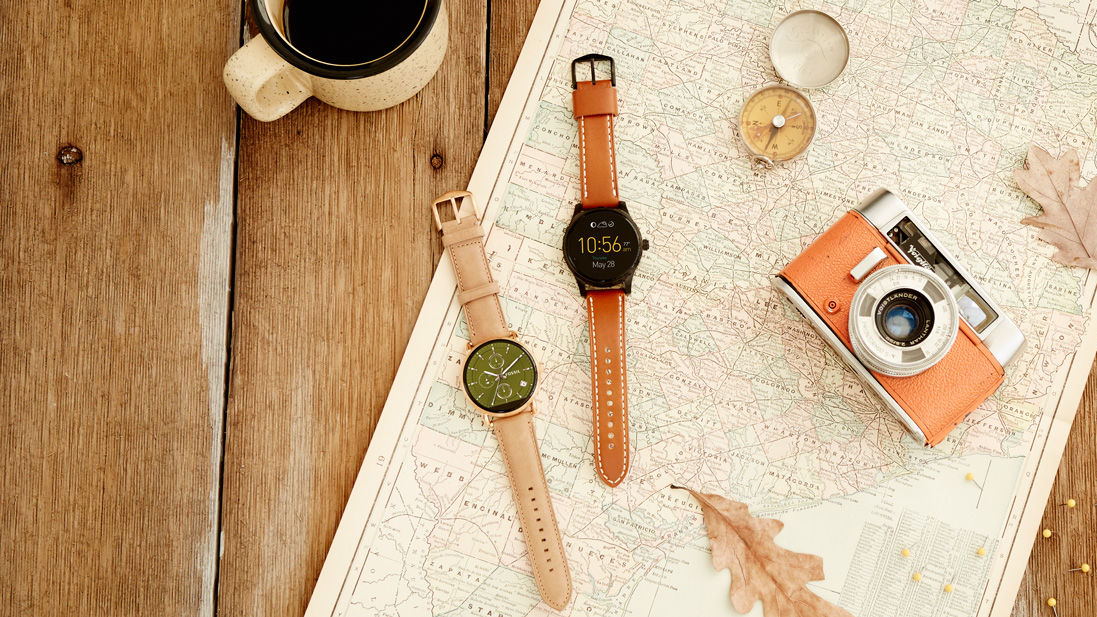Qualcomm promises big smartwatch improvements in next two years.
Taking Android Wear to the next level

You've probably already seen the Fossil Q Marshal and Fossil Q Wander smartwatches, but TechRadar has now had confirmation that these will be the first to ship with Qualcomm's new watch-dedicated chipset – and there's more innovation to come.
The Snapdragon Wear 2100 is designed to improve speed and battery life in newer smartwatches, and while the Asus ZenWatch 3 was announced yesterday packing the new chipset, Fossil will be the first brand to put it on the shelves.
The Marshall and Wander both use Android Wear 2.0, but beyond that don't really offer too much in terms of innovative specs.
Fashion first
However, the move from Qualcomm to support a fashion brand over more 'traditional' technology brands is significant, with Anthony Murray (Qualcomm's senior vice president and general manager, IoT) telling TechRadar that there was an 'internal focus' to focus on the fashion brands.
"We're going to work with the usual suspects [on the tech side], but most people who wear watches go for fashion brands," Murray said.
More intriguing, however, was what Murray said about Qualcomm's plans in the smartwatch space. While pointing out that the Snapdragon Wear 2100 is 25% more efficient already, Murray confirmed that Qualcomm is more interested in making smartwatches standalone devices over the next 12-18 months.
This isn't the first time Qualcomm has said this to TechRadar – but this is the first time we've seen such a timeframe, and Murray pointed to a future where your watch will learn more about you, be able to work untethered and then give you daily prompts about stuff that you need to know, while being more intelligent about what to show and when.
Get daily insight, inspiration and deals in your inbox
Sign up for breaking news, reviews, opinion, top tech deals, and more.
This functionality would mean you'd be able to operate a watch far more 'touchlessly', without the need for complicated gesture support – Murray called it "responding to you" as a way of describing how the smartwatch will be more intuitive in the future.
He added that future smartwatches will be smaller as components shrink down, allowing the features like modems and antennas that will be needed to improve functionality to still exist inside something that still resembles a fashion watch.

Gareth has been part of the consumer technology world in a career spanning three decades. He started life as a staff writer on the fledgling TechRadar, and has grew with the site (primarily as phones, tablets and wearables editor) until becoming Global Editor in Chief in 2018. Gareth has written over 4,000 articles for TechRadar, has contributed expert insight to a number of other publications, chaired panels on zeitgeist technologies, presented at the Gadget Show Live as well as representing the brand on TV and radio for multiple channels including Sky, BBC, ITV and Al-Jazeera. Passionate about fitness, he can bore anyone rigid about stress management, sleep tracking, heart rate variance as well as bemoaning something about the latest iPhone, Galaxy or OLED TV.